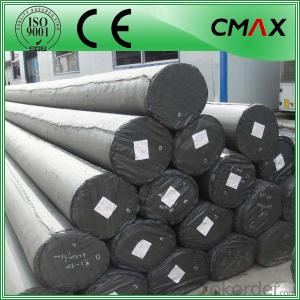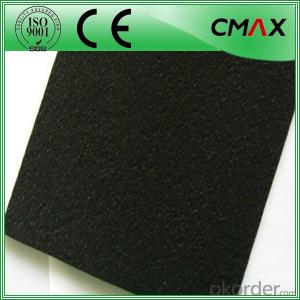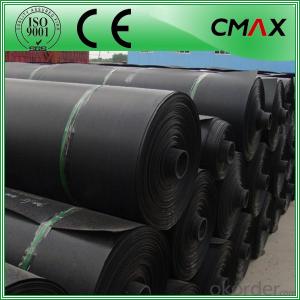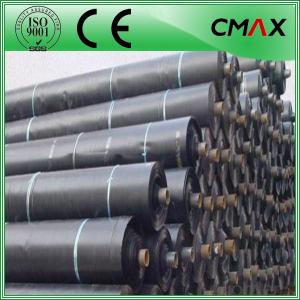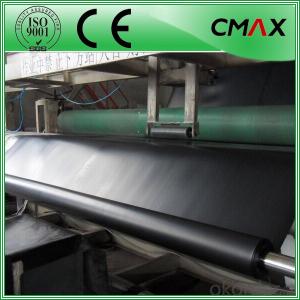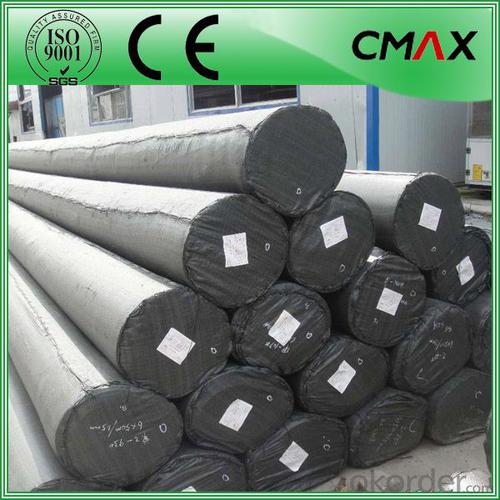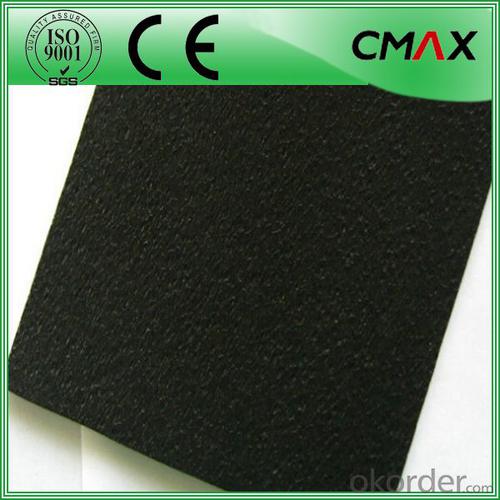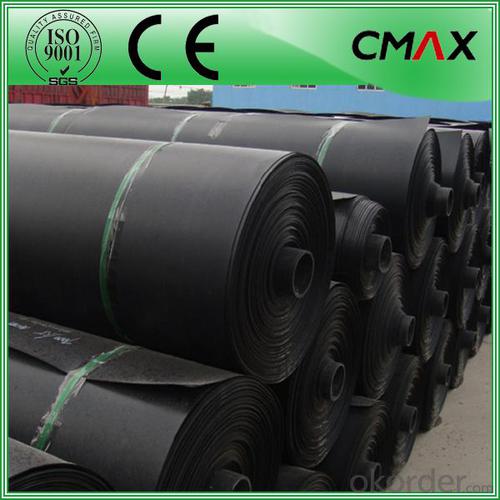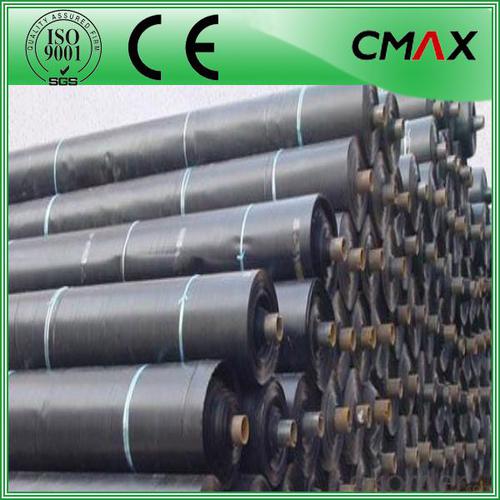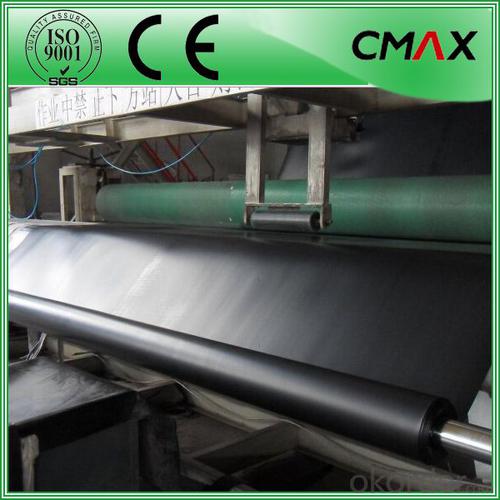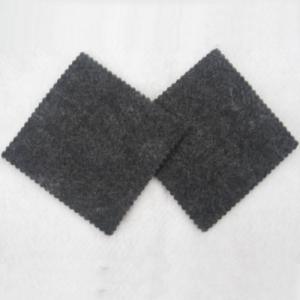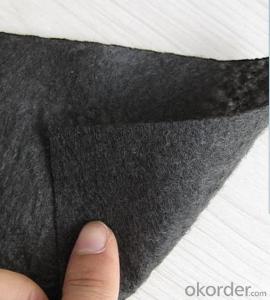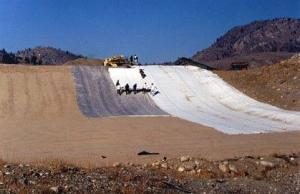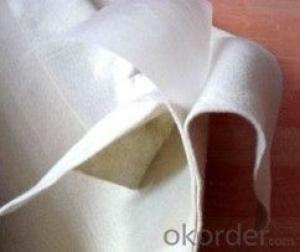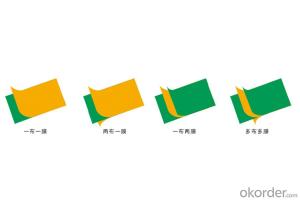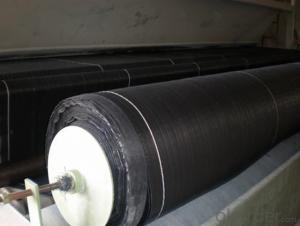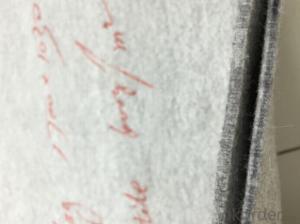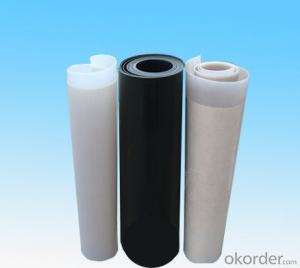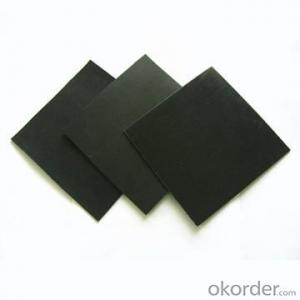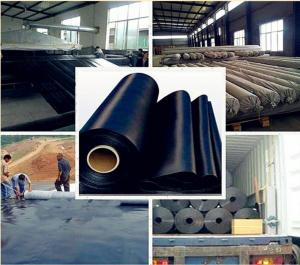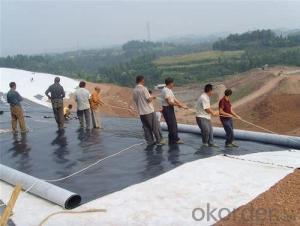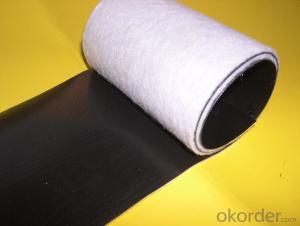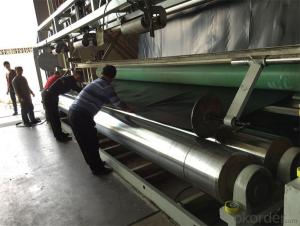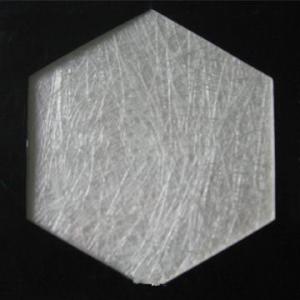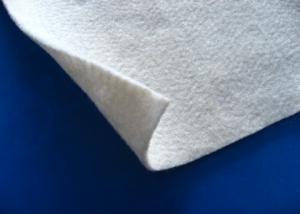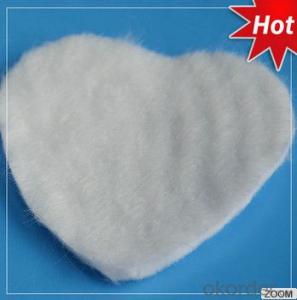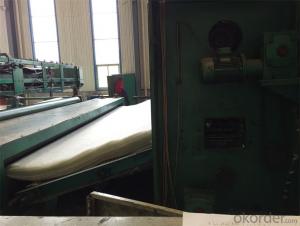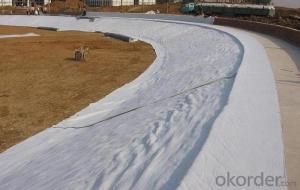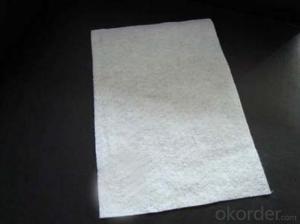Geomembrane HDPE Pond Lining 0.2,0.3,0.5,0.6mm for Water,Pond,Landfill Construction
- Loading Port:
- Tianjin
- Payment Terms:
- TT OR LC
- Min Order Qty:
- 100 roll
- Supply Capability:
- 20000 roll/month
OKorder Service Pledge
OKorder Financial Service
You Might Also Like
Geomembrane HDPE Pond Lining 0.2,0.3,0.5,0.6mm for Water,Pond,Landfill Construction
Geomembrane Features:
Good mechanical properties, high tear strength, deformation and adaptable, puncture resistance, anti-aging, anti-ultraviolet-resistant, Anti oil and salt, pH, anti-corrosion, high temperature-resistant, non-toxic, long service life. water, drainage, seepage, the good effect of moisture, width, thickness of the full range of specifications and low cost, simple construction.
Specifications and Technical datas:
| Thickness | 0.15mm - 4.0mm |
| width | Within 8 m |
| length | 50-100m/roll (at request) |
| Material | HDPE,( LDPE, LLDPE, PVC, EVA ) |
| Color | Black , white , grey |
| Optional surface | Textued(one or two side) or smooth surface |
| Manufacturer | The biggest geomembrane liner manufacturer/factory in China for many years |
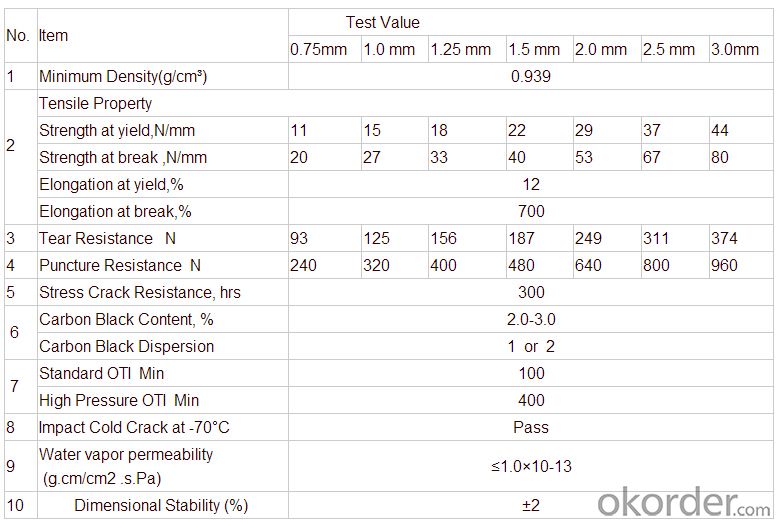
Details of our products:
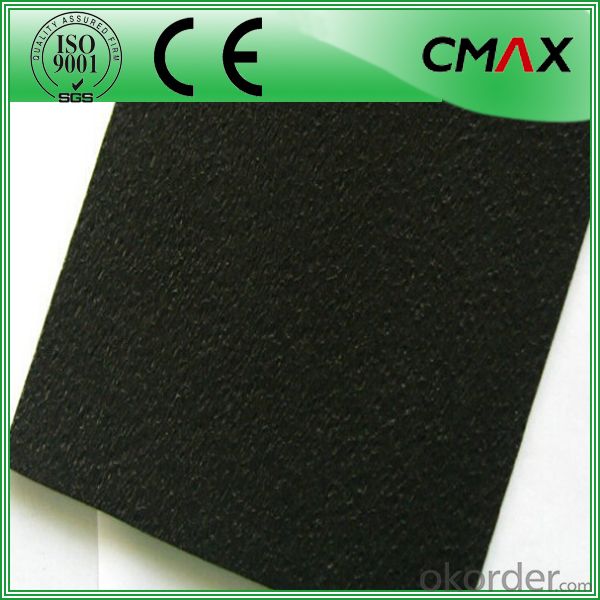
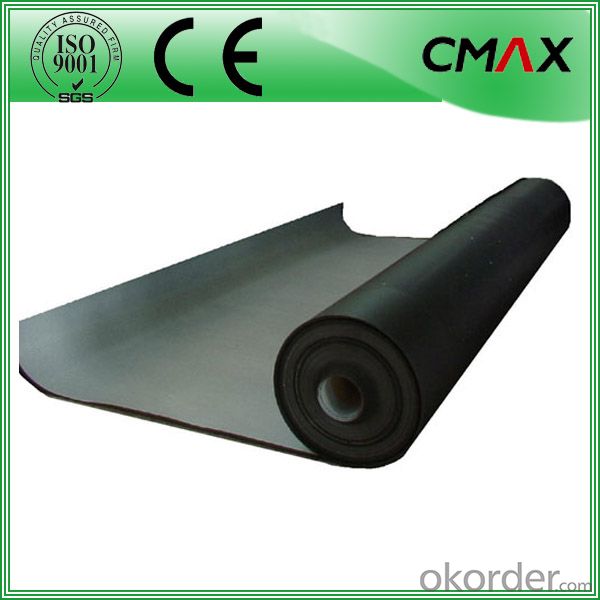
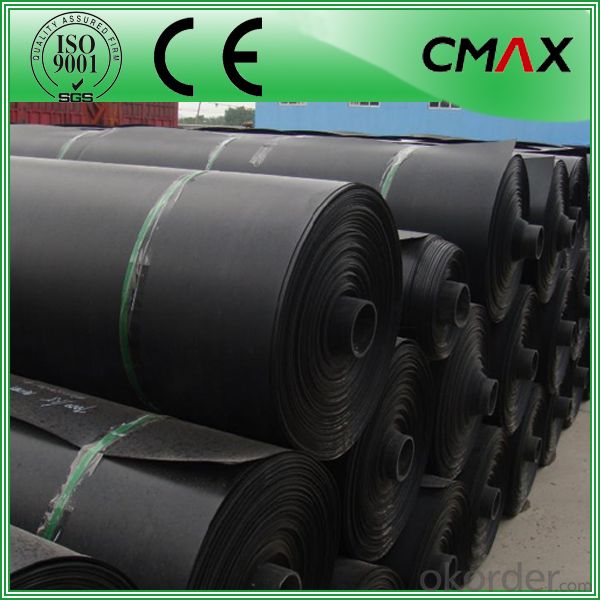
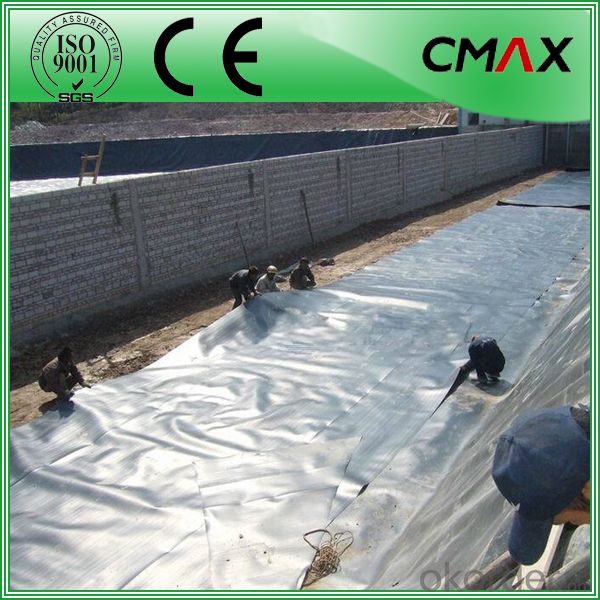
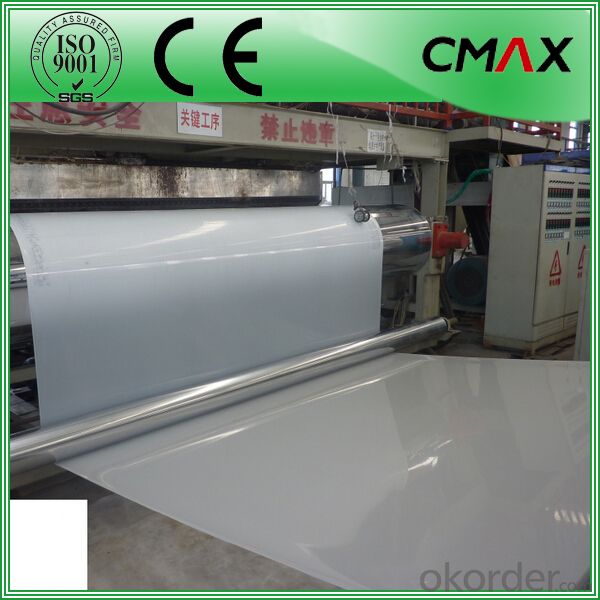
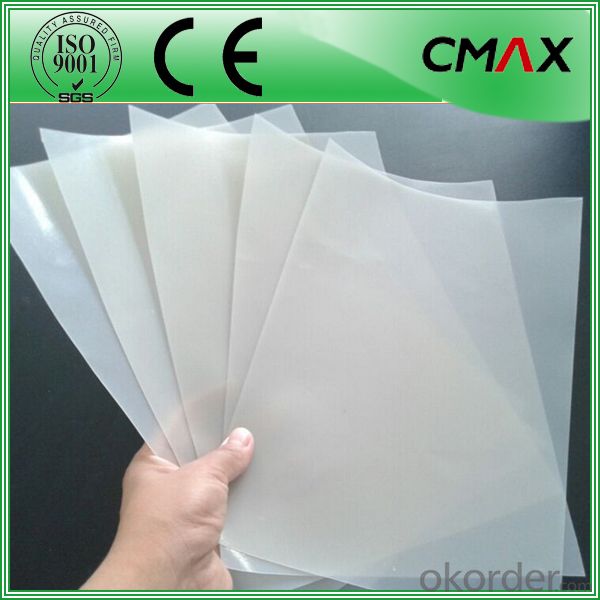
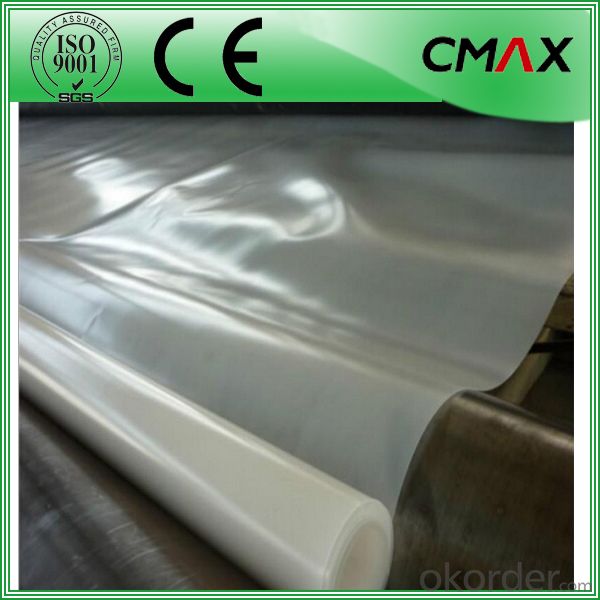
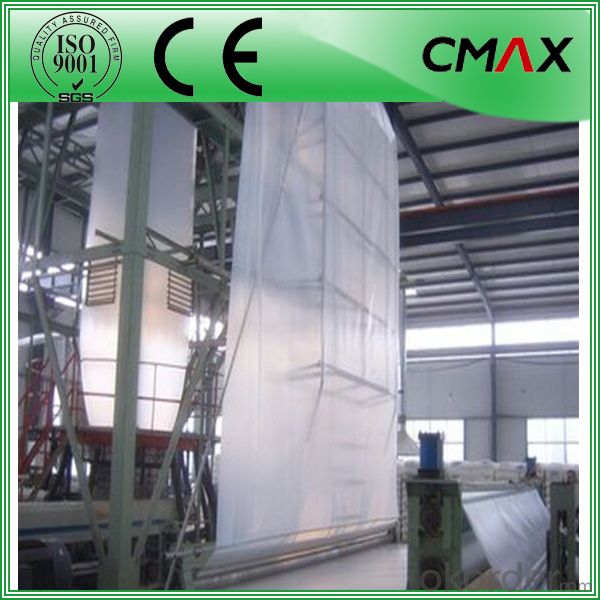
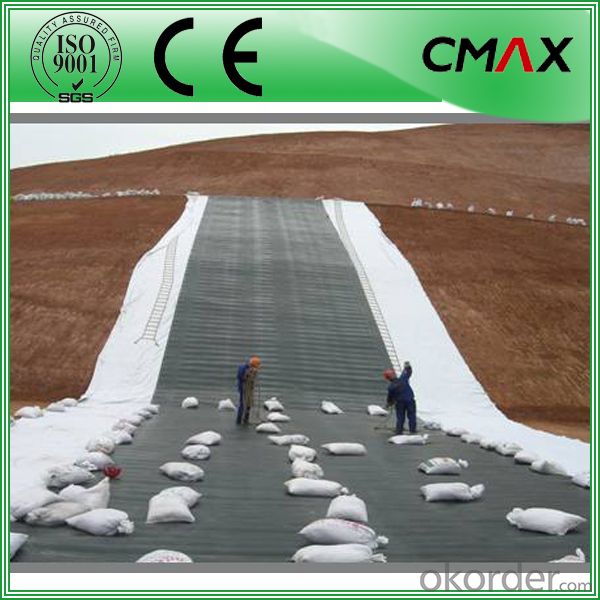
Applications:
1) Environmental protection, sanitation (such as solid waste landfills, sewage treatment plants, power plants Chi-conditioning, industrial, hospital solid waste, etc.) .
2) Water (such as rivers, lakes and reservoirs of the anti-dam, plugging, reinforcement of the canal seepage, the vertical wall of the heart, slope protection, etc.).
3) Municipal Engineering (subway, on the ground floor of the building, planted roof, the roof garden of anti-seepage, sewage pipes lining, etc.).
4) Landscape (man-made lake, river, reservoir, golf courses reservoirs of the substrate, slope protection, green lawn of the waterproof moisture, etc.).
5) Petrochemical (chemical plants, oil refineries, gas storage tanks of the anti-chemical reaction tanks, sedimentation tanks of the lining, etc.).
6) Mining (washing and pool heap leaching, the ash-field, dissolved, precipitation, the yard, the tailings seepage substrates, etc.) .
Packing and shipping:
1. The outer package: black or white woven geotextile.or we can make the package as your requst.
2. Different tgram/ roll size for different qty in the same containers.
3. Roll size: 3.95m*200 for container
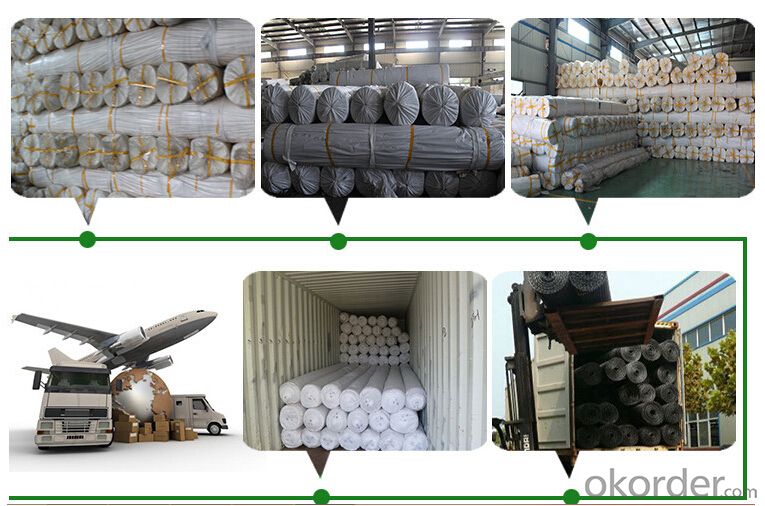
FAQ:
Q1: What is your minimum order quantity?
A:The minimum order quantity is 5000 ,but it is negotiable.
Q2:What is your payment terms?
A: T/T,Western Union,Paypal,L/C...
HDPE Geomembrane Price
Q3:What is your delivery time?
A:Production time usually costs 2-20 days.
Waiting to cooperate with you!
- Q: Heap half a month later in the mound inside dug a tree tree hole, a heavy rain, a region which has two trees in the area of water, to several days of talent, which is normal, please expert advice, More
- Are you geotextile or composite film? Is your waterproofing layer ready? Do not leak?
- Q: How do geotextiles help with erosion control in river channels?
- Geotextiles aid in erosion control in river channels by acting as a protective barrier against soil erosion. They are placed along the riverbanks or riverbeds to prevent the loss of soil particles due to water flow. Geotextiles stabilize the soil, increase its resistance to erosion, and promote vegetation growth. Additionally, they allow water to pass through while retaining sediment, thus reducing sedimentation in the river channel.
- Q: What are the specifications for geotextiles in roadways?
- Geotextiles used in roadways should meet certain specifications to ensure their effectiveness. These specifications typically include factors such as tensile strength, puncture resistance, filtration capability, and elongation properties. Additionally, the geotextiles should have appropriate thickness, weight, and permeability to allow for proper drainage and filtration of water. The specifications may vary based on the specific requirements of the road project, but overall, geotextiles in roadways need to be durable, efficient, and capable of enhancing the overall performance and longevity of the road.
- Q: How do geotextiles help with filtration in geosynthetic clay liners?
- Geotextiles help with filtration in geosynthetic clay liners by serving as a barrier between the clay liner and the surrounding soil. They prevent the migration of fine particles from the soil into the clay liner, ensuring efficient filtration and preventing clogging of the clay liner.
- Q: What are the factors to consider when designing with geotextiles?
- When designing with geotextiles, there are several factors that need to be considered. These include the specific application or purpose of the geotextile, the physical and mechanical properties of the geotextile, the site conditions and environmental factors, the installation methods and techniques, and the long-term performance and durability requirements. Additionally, factors like cost, availability, and compatibility with other materials should also be taken into account during the design process.
- Q: How do geotextiles help with erosion control?
- Geotextiles help with erosion control by providing a protective barrier against soil erosion. They are placed on the soil surface or buried within it to prevent the loss of soil particles due to water runoff or wind. The geotextiles allow water to pass through while retaining the soil, preventing erosion and maintaining soil stability.
- Q: What are the different factors to consider for geotextile selection in mining applications?
- When selecting geotextiles for mining applications, several factors need to be considered. These include the required strength and durability of the geotextile to withstand the specific mining conditions, such as heavy loads, abrasion, and chemical exposure. The geotextile's filtration and drainage properties are also crucial in managing water flow and preventing soil erosion. Additionally, the geotextile's ability to resist biological degradation and UV radiation should be evaluated to ensure long-term performance. Lastly, cost-effectiveness and compliance with environmental regulations should be taken into account during geotextile selection for mining applications.
- Q: How are geotextiles used in coastal engineering?
- Geotextiles are commonly used in coastal engineering to stabilize and protect coastlines. They are placed beneath coastal structures or along the shoreline to prevent erosion, reduce wave impact, and enhance sedimentation. Geotextiles act as a barrier, preventing the loss of soil while allowing water to pass through, thereby minimizing the negative effects of waves and tides on the coastline. Additionally, they provide a stable foundation for coastal structures like revetments, breakwaters, and seawalls, helping to maintain their integrity and longevity.
- Q: It is good to cover the geotextile
- What are you breeding? Tarpaulin can be waterproof and waterproof, do not know if you have not seen geotextiles, geotextiles and silk cotton coat inside the like, light, there is a certain role in insulation, but not waterproof. Hope to help you
- Q: How do geotextiles help in erosion control?
- Geotextiles help in erosion control by acting as a barrier between the soil and water, preventing erosion by filtering and stabilizing the soil. They provide reinforcement and support to the soil, reducing the impact of water flow and preventing the loss of soil particles. Additionally, geotextiles promote vegetation growth by retaining moisture, enhancing root development, and protecting newly seeded areas from wind and water erosion.
Send your message to us
Geomembrane HDPE Pond Lining 0.2,0.3,0.5,0.6mm for Water,Pond,Landfill Construction
- Loading Port:
- Tianjin
- Payment Terms:
- TT OR LC
- Min Order Qty:
- 100 roll
- Supply Capability:
- 20000 roll/month
OKorder Service Pledge
OKorder Financial Service
Similar products
Hot products
Hot Searches
Related keywords
